Sarkozy or Hollande? A Critical Choice for the Future of the EU
Latest Update 5/6/ 2012 at 11.00 AM PST: According to exit polls Hollande has defeated Sarkozy with 51.9 percent of the votes against 48.1 percent for the incumbent. Hollande is the first Socialist to be elected president in almost two decades since Mitterand. Celebrations are underway in France, notably at the Place de la Bastille in Paris.
On Sunday May 6, France will elect its next president. Beside the consequences for French people, this presidential election has geopolitical and economic ramifications for the policies, the cohesion, and even the survival of the European Union. President Sarkozy’s campaign slogan is “A strong France”, while his opponent socialist Francois Hollande is running on “The time for change is now”. If Hollande is elected, can he balance the rise of power of Germany and make sure the voices and interests of the people of Greece, Spain, Portugal and Italy are heard?
Sarkozy has been trailing consistently behind Hollande in the polls, and lost the first round of the elections, on April 22 nd, to the socialist candidate. Many French voters have had a falling out with the hyper-active Sarkozy, who can be called arguably the first American style French president. Sarkozy’s constant media exposure has become an invasion of privacy for many French people who like their politicians a bit more subdued than Americans. Mr Hollande is fully aware of this collective psychological element when he says that, if elected, he will be a “normal” president.
Sarkozy: More Petain than De Gaulle
The very first words of Sarkozy’s electoral pamphlet sent to French voters living overseas are: ” In a word in crisis, while so many of our European neighbours are going through great difficulties putting in jeopardy their unity and social model, I heard your anxiety, your sufferings and your expectations.” Playing on voters fear and anxiety is, of course, the oldest political trick in the book, and it doesn’t only apply to France. But Sarkozy is using it to portray himself as both, a benevolent father and a therapist: the only man who can “protect” France and French people in this “time of crisis”.
Ever since the French revolution, the motto of France has been “Liberty, Equality, Fraternity”. However, this changed for the few years of the shameful pro-German government of Petain during World War II to become “Work, Family, Motherland”. In Sarkozy’s electoral pamphlet, the three words- work, family and motherland- are used several times as key elements and sometime in bold letters such as “making the choice of work” and Sarkozy’s pledge to “protect the family”.
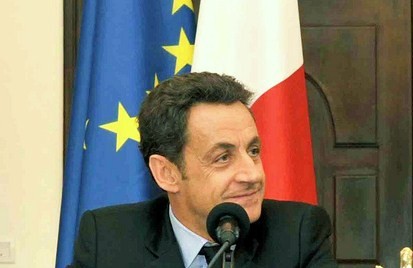 But regardless of projecting a sense of strength, and his eagerness of keeping himself, if not France, in the international limelight, Sarkozy has arguably made France considerably weaker by being the docile vassal of both Washington and Berlin. If his mentor former president Chirac had the courage to vehemently oppose the war in Iraq during the Bush era, Sarkozy is a weak opportunist going where the wind blows. Not only he has failed to oppose the sort of economic Fourth Reich imposed by Germany on the rest of the European Union, but he has also betrayed the traditional Gaullist foreign policy of maintaining France’s independence and own voice-even if it was in opposition of Washington. For decades, France brought this kind of balance in foreign policies, especially in the Middle-East, by being the only Western European country voicing criticisms of Israel’s policies and actively defending Palestinian rights. Despite his claim to the contrary, Sarkozy has made France weaker not stronger on the world stage, but, if elected, can Hollande reverse this situation and oppose, if needed, either president Obama or Chancellor Merkel?
But regardless of projecting a sense of strength, and his eagerness of keeping himself, if not France, in the international limelight, Sarkozy has arguably made France considerably weaker by being the docile vassal of both Washington and Berlin. If his mentor former president Chirac had the courage to vehemently oppose the war in Iraq during the Bush era, Sarkozy is a weak opportunist going where the wind blows. Not only he has failed to oppose the sort of economic Fourth Reich imposed by Germany on the rest of the European Union, but he has also betrayed the traditional Gaullist foreign policy of maintaining France’s independence and own voice-even if it was in opposition of Washington. For decades, France brought this kind of balance in foreign policies, especially in the Middle-East, by being the only Western European country voicing criticisms of Israel’s policies and actively defending Palestinian rights. Despite his claim to the contrary, Sarkozy has made France weaker not stronger on the world stage, but, if elected, can Hollande reverse this situation and oppose, if needed, either president Obama or Chancellor Merkel?
Hollande: Can he rise to the occasion and make a stand for social justice?
Curiously, Hollande’s dullness and lack of charisma are part of his appeal for a lot of French voters. If Sarkozy is a brash political “rock star”, Hollande is a technocrat claiming to have a passion for social justice. Even if one of his electoral promises is to pay off France’s national debt by 2017, Hollande doesn’t think the policies of austerity favored by Merkel are good. To resolve France’s debt crisis, Hollande plans to cancel tax cuts for the wealthy and tax exemptions put in place by Sarkozy. Income tax would be at 75 percent for incomes topping one million euros. Hollande would also bring back the retirement age to 60- with full benefits- for people who have worked 42 years. 60,000 job cuts, made by Sarkozy, in public education would be recreated. But what are perhaps the most progressive of Hollande’s electoral promises are two of his pledges. The first one is to legalize gay marriage and adoption by gay couples. The second one is to grant the right to vote, in local elections, to residents without EU passports providing that they have been legal residents for at least five years.
Will xenophobia win the French election?
Unfortunately, the decisive voting block is likely to be the one of the far right Front National party of Marine Le Pen. She came third during the first round with a strong performance of around 20 percent of the vote. Even so Marine Le Pen has avoided the blunt xenophobic statements of her father, Jean-Marie Le Pen, the message is still the same. She wants immigration to be reduced by 95 percent as well as “national preferences” for French citizens for access to jobs and social services. On the Front National platform is also a withdrawal from the euro zone and the European Union as well as reinstating the death penalty. Needless to say, in the past few weeks, Sarkozy has been tailoring his discourse to the Front National’s electorate by pledging to reduce immigration by 50 percent.
Related Articles


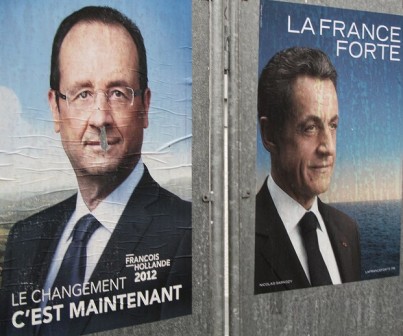
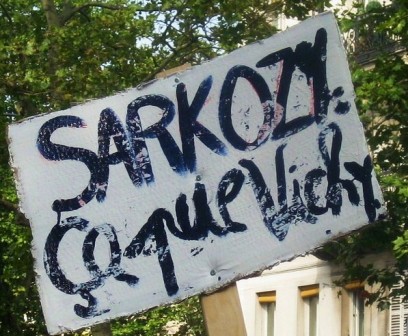
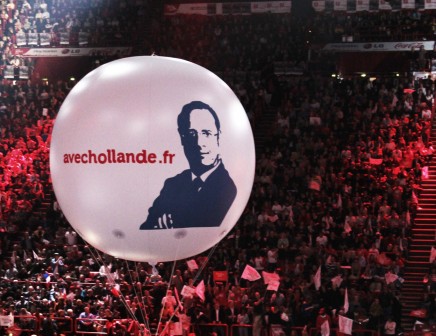
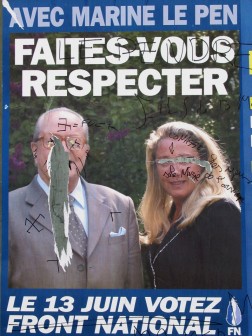











You must be logged in to post a comment Login